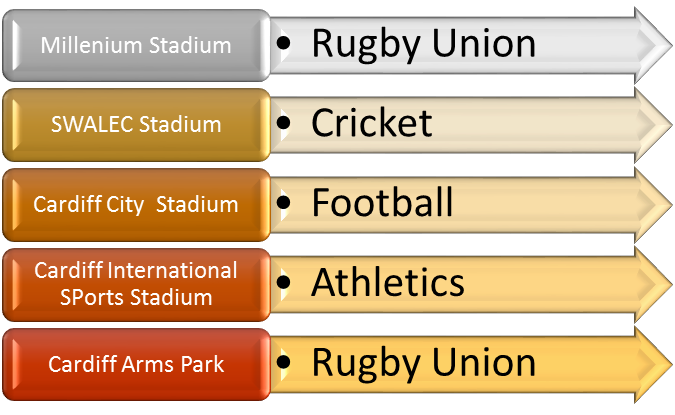Course Content
- What is Business Analysis?
- The origins of business analysis
- The development of business analysis
- The impact of outsourcing
- Competitive advantage of using IT
- Successful business change
- The importance of the business analyst
- Business analysts as internal consultants
- The scope of business analysis work
- The range of analysis activities
- Strategic analysis and definition
- IT systems analysis
- Business analysis
- Taking a holistic approach
- Business Analyst – Roles and Responsibilities
- Description of the business analyst role
- Further aspects of the business analyst role
- The Competencies of a Business Analyst
- Personal qualities
- Business knowledge
- Professional techniques
- The development of competencies
- Strategy Analysis
- The context for strategy
- The definition of strategy
- Policy development
- External environment analysis
- PESTLE analysis
- Porter’s five forces model
- Internal environment analysis
- MOST analysis
- Resource Audit
- Boston Box
- SWOT analysis
- Executing strategy
- The McKinsey 7-S model
- The Balanced Business Scorecard
- Critical Success Factors and Key Performance Indicators
- The Business Analysis Process Model
- An approach to problem-solving
- Stages of the business analysis process model
- Investigate the situation
- Consider the perspectives
- Analyse the needs
- Evaluate the options
- Define the requirements
- Objectives of the process model stages
- Procedure for each process model stage
- Techniques used within each process model stage
- Investigation techniques
- Interviews
- Advantages and disadvantages of interviewing
- Preparing for interviewing
- Conducting the interview
- Following up the interview
- Observation
- Pros and Cons of observation
- Formal observation
- Protocol analysis
- Shadowing
- Ethnographic studies
- Workshops
- Pros and Cons of workshops
- Preparing for the workshop
- Facilitating the workshop
- Techniques
- Following the workshop
- Scenarios
- Situations - Advantages and disadvantages
- Process for developing scenarios
- Documenting scenarios
- Prototyping
- Prototyping - Advantages and disadvantages
- Quantitative approaches
- Surveys or Questionnaires
- Special Purpose Records
- Activity Sampling
- Document Analysis
- Documenting the current situation
- Rich Pictures
- Mind Maps
- Interviews
- Stakeholder Analysis and Management
- Stakeholder categories and identification
- Customers
- Partners
- Suppliers
- Competitors
- Regulators
- Owners
- Employees
- Managers
- Stakeholders Analysis
- The Power/Interest Grid
- Stakeholder management strategies
- No interest and no power
- Some or high interest but no or little
- No or low to high interest but some power (or influence)
- Very less interest but high power
- Some interest and high power (or influence)
- Keen interest and high power (or influence)
- Managing stakeholders
- Stakeholder plan/assessment
- The Stakeholder Perspectives – An Understanding
- Soft Systems Methodology
- Analysing the perspectives
- CATWOE
- Business activity models
- An Overview Of business activity model
- Learn About Activity Types
- Forming a consensus model
- Stakeholder categories and identification
- Modelling Business Processes
- Organisational context
- Functional view of an organisation
- An alternative view of an organisation
- The corporate view of business processes
- Value propositions
- Process models
- Business events
- Developing the business process model
- Analysing the as-is process model
- Improving business processes (to-be business process)
- Business rules
- Simplify the process
- Remove bottlenecks
- Change the sequence of tasks
- Redefine process boundary
- Automate the processing
- Redesign the process
- Organisational context
- Defining the solution
- Gap analysis
- Pointing Out Focus Areas
- The Gap Analysis Framework
- Formulating options
- Introduction to Business Architecture
- Definition of Business Architecture
- Business Architecture techniques
- Definition of a capability model
- Definition of a value stream
- Gap analysis
- Making a Business and Financial Case
- The business case in the project lifecycle
- Identifying options
- Assessing project feasibility
- Business feasibility
- Technical feasibility
- Financial feasibility
- Structure of a business case
- Contents of a business case
- Categories of costs and benefits
- Impact assessment
- Risk assessment
- Investment Assesment
- Payback – An Overview
- Discounted cash flow and Internal Return Rate
- Establishing the Requirements
- A framework for requirements engineering
- Actors in requirements engineering
- The business representatives
- The project team
- Requirements elicitation
- Tacit and explicit knowledge
- Requirements elicitation techniques
- Requirements analysis
- Requirements filters
- SMART requirements
- Requirements validation
- Documenting and Managing Requirements
- The requirements document
- Structure
- Content of the requirements document
- The requirements catalogue
- Types of requirements
- functional and non-functional
- general
- technical
- Hierarchy of requirements
- Recording requirements
- Types of requirements
- Manage requirements
- Elements of requirements management
- The requirements document
- Modelling Requirements
- Modelling system functions
- Use case diagrams
- Modelling system data
- Entity Relationship Diagrams
- Entities, attributes and relationships
- Types of relationships
- Class Models
- Objects and classes
- Attributes
- Associations
- Entity Relationship Diagrams
- Modelling system functions
- Delivering the Requirements
- Providing the solution
- Context
- Lifecycles
- The waterfall lifecycle
- The ‘V’ design lifecycle
- Incremental lifecycle
- Iterative systems development lifecycle
- Delivering the Business Solution
- BA role in the organisation change lifecycle
- Design stage
- Information and Technology
- Design
- Development
- Testing
- Implementation stage
- SARAH model
- Realisation stage
- Contents of the benefits plan
- Information and Technology

 ENQUIRE
ENQUIRE
 REQUEST CALLBACK
REQUEST CALLBACK
 GET A FREE QUOTE
GET A FREE QUOTE


 Introduction
Introduction Course Details
Course Details Course Content
Course Content






 London
London